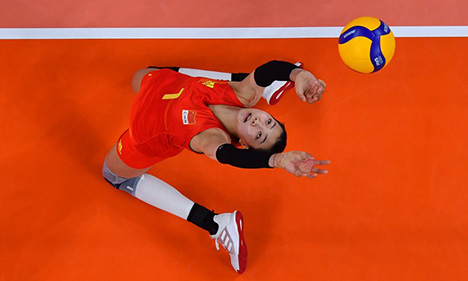Another Ukraine crisis in Asia-Pacific?
BEIJING, April 20 (Xinhua) -- American Neorealism political scientist John Mearsheimer wrote in The Tragedy of Great Power Politics that "the U.S. has followed a 'buck-passing' strategy, remaining on the sidelines while getting others to bear the burden of deterring or fighting aggressors -- until it could no longer do so safely."
The Russia-Ukraine conflict has exposed to the world America's dirty roles and textbook-style "buck-passing" tricks to use Ukraine to counter and contain Russia. While the Ukraine crisis is still unfolding, there are various indications that Uncle Sam is repeating the whole playbook and offshore balancing strategy in Asia-Pacific. But the target this time is China.
With an evolving geopolitical landscape and the changing balance of power in Asia featuring a rising China and declining U.S. influence, it seems to the United States that a strong and stable Asia will no longer allow the America to seize power and wealth from the region.
From the "Pivot to Asia" to the "Indo-Pacific Strategy," the United States has been teaming up its allies and regional countries to contain China, as it did by expanding NATO eastward against Russia. But the Cold-War and confrontational approach will only bring about conflicts and suffering to the Asian countries and their people.
Security-wise, the United States has been beefing up its military presence in Asia and tried to turn Asian countries into its outposts encircling China. Since November 2011 when then President Barack Obama unveiled the "Pivot to Asia" strategy, the United States has carried out joint military exercises from time to time with regional countries and played up the issue of the East China Sea and the South China Sea to provoke China.
Likewise, the United States deployed the Terminal High Altitude Area Defense system in South Korea, and established QUAD and AUKUS, which has triggered a new round of arms race, and seriously aggravated tension and confrontation in the region. Don't forget Taiwan, a province of China, which has been turned into a political tool and military fortress by the United States to confront China.
However, as it did in the Ukraine crisis, the United States is apt at fanning the flame without getting directly involved to put out the fire. Once the powder keg is detonated, it is the people of Asia who suffer, not the Americans 10,000 km away.
Economically, Asian countries value economic cooperation with China as boosted by the Regional Comprehensive Economic Partnership, known as the "world's largest free trade area," among others.
However, the United States tries to squeeze China out of the regional market with its own initiatives, first Obama's TPP and now Biden's Indo-Pacific economic framework, which focuses on forming a U.S.-led economic bloc excluding China.
Without any more added value, this framework of the Biden administration is more like a "stick" than a "carrot" to regional countries which want prosperity rather than being forced to take sides in the U.S.-China competition, let alone becoming a "bridgehead" against China. As Indonesian Foreign Minister Retno Marsudi said, "People will ask about what is the point of it if the Indo-Pacific strategy does not bring economic benefits to the people?"
When elephants fight, it is the grass that suffers. This adage is increasingly relevant today, as it reflects a sense of realistic anxiety of Asian countries. The people of Asia, who have suffered centuries of colonial plunder and oppression, are yearning for peace, cooperation and development, rather than bloc confrontation and a zero-sum game. That is perhaps the most valuable lesson from the Ukraine crisis for Asia. Enditem
(Xin Ping is a commentator on international affairs, writing regularly for Global Times, China Daily, etc. He can be reached at xinping604@gmail.com.)
Photos
Related Stories
- In pics: Russia-Ukraine conflict
- Commentary: Moscow’s countermeasures sparked by West’s extreme pressure campaign targeting Russia
- Only by upholding correct security vision can countries achieve universal security
- Ukrainian president proposes to extend martial law again
- Ukraine, Russia conduct fifth prisoner swap
Copyright © 2022 People's Daily Online. All Rights Reserved.










